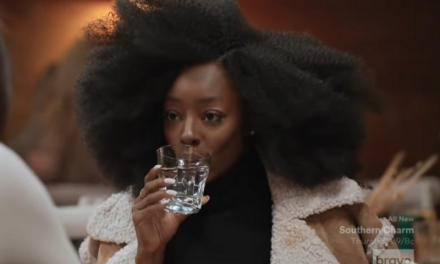
Leaving a lasting legacy is not about the material possessions we accumulate, but rather the impact we make through our actions. The greatest legacy we can leave our children is happy memories.
It’s what we do, not what we have, that will create a lasting legacy.
When you think back on your life, who and what impacted you the most?
- Was it a prized heirloom given to you by a loved one that now sits on a shelf?
- Or was it a particular experience or series of experiences you had with that loved one that helped shape you?
For me, it was almost always the latter. One particularly fond memory is of me sitting at the kitchen table with my Polish grandmother, pinching pierogies. During the time we spent together, not only did I learn how to make one of our favorite family treats, but I also learned about strength, perseverance, faith, and true grit from a woman who grew up under Communist rule and who migrated to America at a young age.
Hers Is a Living Legacy; What She Taught Me Is Intangible
Through her eyes and our many conversations, I got to see for myself what fortitude and grit looked like. These lessons remain with me today. They impacted me in ways she will never know, but for which I am eternally grateful.
Before she passed away, she also wanted to give me her handwritten pierogi recipe, a recipe handed down to her from her own mother and grandmother. While seemingly minuscule, to me, that small tangible heirloom is priceless.
While I cherish that recipe written in her own hand, the time we spent together at our kitchen table has a far more lasting impact that I will carry with me throughout my lifetime.
In my previous articles for this series, I focused on tangible heirlooms (our stuff) and how the younger generations, due to various influences and shifting values, are rebelling against our tradition of passing down our physical heirlooms as a means of preserving our cherished memories and traditions.
1st Blog – “MOM, THANKS, BUT NO THANKS!”: THE REBELLION AGAINST FAMILY HEIRLOOMS
2nd Blog – IT’S JUST GRANDMA’S OLD STUFF… UNTIL IT’S VINTAGE. THEN IT’S CHIC!
In this new article, I am focusing on intangible heirlooms, a timeless way of passing down family stories and customs without passing down our possessions.
Why Is Intangible Legacy Important?
It is intended to help:
- Bridge the generational gap of ideas, beliefs, behaviors, and values about family, heirlooms, and legacy.
- Shift our perspective by rethinking and expanding the definition of family heirlooms and the tradition of handing down physical items from generation to generation.
- Explore simple ways to connect generations, preserving cherished traditions through shared activities, experiences, conversations, and storytelling.
- Discuss the value of intangible heirlooms that enrich the lives of our loved ones by helping to foster family bonds and laying a foundation for future generations.
In our lifetime, many of us have been caught up in accumulating possessions and then sharing them with our children when we pass. Times are changing, and what our kids value is changing. Our kids live in smaller spaces and value collecting experiences rather than our stuff. We need to listen to their requests and reflect on what we can do to shift the narrative from leaving “stuff” to leaving a meaningful legacy that will ensure the cherished stories and traditions are not forgotten or overshadowed.
Of course, we can still pass down some of our cherished items, those tangible heirlooms, but when you reflect on what truly matters to you and what lasting impact you want to leave behind, ask yourself:
What Is the Lasting Impact, the Intangible Heirlooms, That I Want to Leave Behind?
The experiences you create with your kids and grandkids today will not only impact their present fun and enjoyment, but they will also impact the future memories they have and the stories they will tell for many years to come.
30 Opportunities to Connect Generations

#1: Cooking and Baking Together
Food is love. It is a powerful way to connect generations, teach new skills, and create lasting memories (e.g., Christmas cookies, ethnic foods like butter lambs, and pierogi).
#2: Holiday Gatherings
Celebrating holidays together creates opportunities to share food, fun, memories, and traditions (e.g., Christmas, Easter, Thanksgiving, Hanukkah).
#3: Family Celebrations
Sharing significant events together, both happy and sad, strengthens family bonds, connecting us on a deeper level (e.g., weddings, funerals, graduations).
#4: Family Dinners
There’s no place like the kitchen table to share, learn, ask advice, and exchange ideas. This teaches us the importance of family.
#5: Multigenerational Travel
Exploring new places, people, and cultures with parents, grandparents, and kids opens doors to conversations while sharing food, fun, and creating new memories.
#6: Family Vacations
Taking time to be together, having fun, relaxing, and learning generates many opportunities to have great conversations and create new memories together (e.g., beach, mountain vacations).
#7: Sports
Participating in sports together provides opportunities to learn new skills, spend time together, and have fun (e.g., golf, pickleball, tennis, swimming, walking, running).
#8: Sporting Events
Watching sports together provides opportunities to share a love of a particular sport, generating conversation and bonding (e.g., football, baseball, soccer, lacrosse).
#9: Hobbies
Doing hobbies together provides opportunities to learn new skills, develop common interests, and have fun creating something together (e.g., sewing, crafting, woodworking).
#10: Arts and Entertainment
Various entertainment mediums provide opportunities to experience something new together, enjoy time together, and connect on a deeper level (e.g., theater, museums).
#11: Gardening
Working in the yard provides an opportunity to share a love of nature, develop new skills, and learn to care for and nurture what we grow together (e.g., flower gardens, vegetable gardens).
#12: Household Chores
Sharing responsibilities for a household, contributing to your family, whether young or old creates bonds (e.g., doing the dishes, setting the table).
#13: Church and Spiritual Activities
Connect with your loved ones on a spiritual level, sharing your faith and beliefs, traditions, and customs (e.g., church on Sundays, celebrating spiritual holidays).
#14: Volunteering
Sharing your time and your gifts with others helps foster compassion and commitment to helping those in need (e.g., Meals on Wheels, serving food at a homeless shelter).
#15: Classes
Incorporating learning into our lives teaches the value of sharing knowledge, wisdom, and exchanging ideas so young and old can learn from each other (e.g., language, technology, cooking).
#16: Music
Music is a universal language that connects young and old (e.g., everyone singing around the piano).
#17: Granny and Grandpa Camp
Overnights at your home to spend time together, tell stories, learn about your family history and traditions, and receive advice and mentorship.
#18: Bedtime Stories
This evening ritual and commitment is an opportunity to spend quality time together, connect on a much deeper level, and learn from books or family stories.
#19: Writing and Journaling
Taking time to record family memories, stories, and exchange ideas creates respect for our past and learning about our roots.
#20: Movie Night
Teaches the importance of shared time and experiences, laughing, crying, and having fun together.
#21: Board Games and Card Games
Having fun, friendly competition teaches the value of family time together across all generations.
#22: Handyman Projects/Repairs
Handywork teaches valuable life skills that we can incorporate into our own lives. It also offers quality time together to have important conversations and share family values.
#23: Competitions
Competing is a healthy way to have fun together, create new memories through meaningful experiences, and teach discipline, sacrifice, and perseverance (e.g., 5k walks, marathons).
#24: Family Photos
Looking at family photos together inspires conversations, sharing stories that help preserve cherished memories. It also provides an opportunity to learn about our family history and connect to our roots.
#25: Finances and Investing
Discussing finances and investing is an opportunity to advise, mentor, and plan for the future. It also teaches discipline, sacrifice, and commitment to goals.
#26: Technology
This is an opportunity for the younger generation to share their knowledge and skills with the older generation, teaching them that we all learn from each other.
#27: FaceTime
This is an opportunity to stay in touch regardless of the distance, sharing about our lives together.
#28: Treasure Hunts in Grandma’s Attic
Looking through the attic creates an opportunity to explore family heirlooms, listen to family stories, and ask questions about your roots. This opens our eyes to family treasures, connecting us on a much deeper level.
#29: Crafting
Sharing an activity you love, teaching new skills, and creating something together is a unique bonding experience.
#30: Emails and Texts
This provides an opportunity to stay connected, regardless of the distance, sharing what’s happening in your lives. The result is a continuous bond.
Stuff Does Not Remain
When we die, our possessions will be left behind and most won’t be cherished. What we will be remembered for will be:
- The love we shared.
- The laughter we brought.
- The lives we’ve touched.
- The memories we’ve made.
I encourage you to take time to reflect on the impact you want to leave behind. Prioritize actions that can change lives by the way you live each day.
It might seem challenging to get our younger and older generations to connect and share experiences, family stories, and traditions, but what if I told you it’s the small, seemingly insignificant moments that we create each day that will be remembered long after you are gone? The experiences you create with your kids and grandkids today will not only impact their present fun and enjoyment, but they will also impact the future memories they have and the stories they will tell for many years to come.
Let’s Have a Conversation:
Which of your stuff matter to your children and grandchildren? What about immaterial things? Does your legacy matter more? What about your stories and time together? Have you noticed your grandchildren showing favoritism to particular stories of your past?





